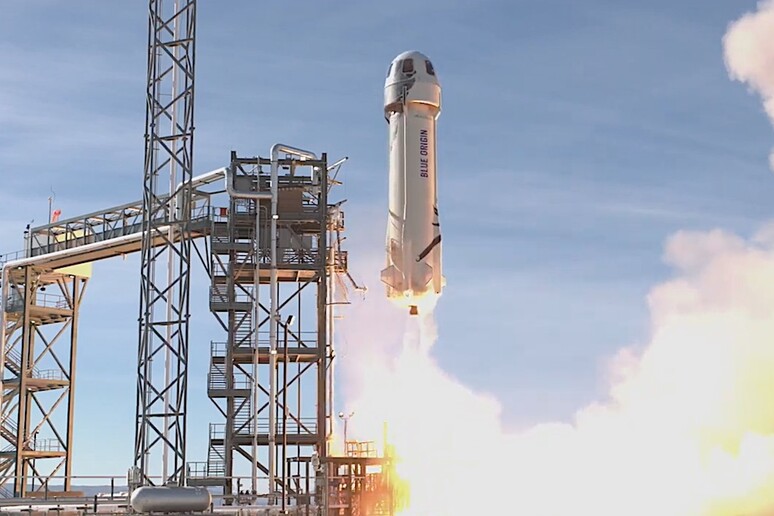Blue Origin marked its return to flight by launching the New Shepard rocket, reaching the edge of space for the first time since a setback over a year ago due to an engine nozzle failure and subsequent booster crash in the West Texas desert. The mission, carrying 33 payloads, including science experiments for NASA and educational institutions, served as a pivotal moment for the company, which has faced challenges and has fallen behind SpaceX in the space industry.
Despite the absence of human passengers, the successful mission represented a crucial step forward for Blue Origin, which has struggled to fulfill the ambitious vision set by its founder, Jeff Bezos, over two decades ago. Bezos, now more actively involved in the company, admitted to its shortcomings and emphasized the need for increased speed and efficiency.
In a podcast interview with Lex Fridman, Bezos expressed his commitment to infusing Blue Origin with energy and urgency. He highlighted his direct leadership role, vowing to make the company the most decisive across industries. Bezos outlined a strategy of embracing appropriate technology risks, making swift decisions, and fostering a culture of boldness and technical ambition among employees.
The flight itself, comprising a successful liftoff, weightlessness experience at an altitude of approximately 66 miles, and a soft landing of the booster on its pad, demonstrated positive progress. Blue Origin has conducted New Shepard space flights 24 times, with six missions involving human passengers.
Addressing past issues within the company, Bezos appointed Dave Limp, a trusted associate from Amazon, as the new CEO after the resignation of Bob Smith in September. Despite the company’s growth, including the establishment of offices and manufacturing facilities, Blue Origin faced internal turmoil, as highlighted in a 2021 Washington Post report revealing a toxic work environment and a loss of trust in leadership.
Blue Origin’s failure to secure a major NASA contract for lunar missions against SpaceX further contributed to its challenges. Bezos, now more dedicated to Blue Origin after stepping down as Amazon’s CEO, is actively working to address these issues and make the company a priority. His personal involvement has increased since his suborbital journey aboard New Shepard in July 2021, which served as a catalyst for his deeper commitment to the space company.












